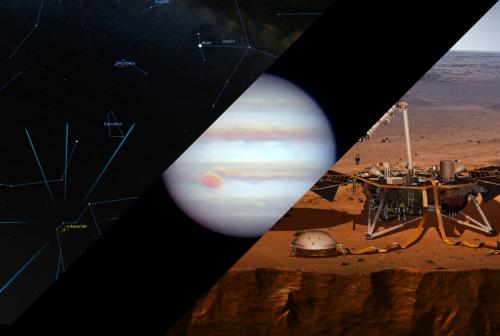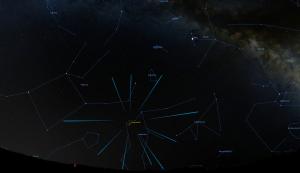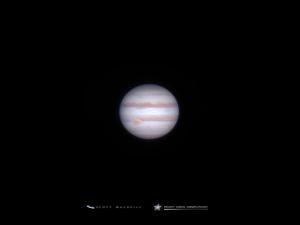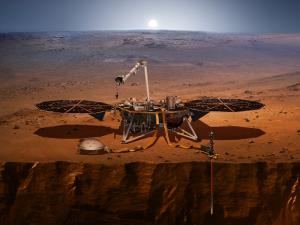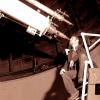Weekly Happenings - May 5th
Weekly Happenings is a weekly digest of current events and happenings in astronomy and science, either local or worldwide. This is the place to grab a quick astro-fix to settle your anxiety about space or perhaps to woo your friends with your astro-prowess. Regardless, this is a place to kick back and get a heads up on cool things happening this week. Enjoy!
---------------------------
During the early morning hours of Sunday, May 6th, the annual Eta Aquarid Meteor Shower will peak, bringing an increase of about 10 meteors per hour in meteor activity. The extended period of the Eta Aquarid peak also places Saturday morning (May 5th) and Monday morning (May 7th) as potential times to catch increased meteor activity. The waning gibbous Moon will be present each morning, which will brighten up the sky enough to obscure our view of dimmer Eta Aquarid meteors. The shower is a result of tiny pieces of comet debris left behind by Comet 1P/Halley (Halley’s Comet). As Earth passes through the orbital path of Halley’s Comet, rice-grain-sized pieces of comet are captured by Earth’s gravity and burn up as they enter Earth’s mesosphere and stratosphere. The shower gets its name from where meteors appear to radiate from in the sky, in this case the star Eta Aquarius. Catching sight of Eta Aquarid meteors is a piece of cake. Set out to a location with a clear view of the night sky. Lay on your back so you are facing the zenith (top of the sky) and orientate your feet towards the east. If you catch a photo of a meteor, post it on our Facebook and we’ll share it on our timeline. Happy meteor watching!
On Tuesday, May 8th, Earth will reach the point in our yearly solar orbit when we align with the Sun and Jupiter, placing Jupiter on the opposite side of Earth than the Sun. We call this the “opposition of Jupiter”, which places Jupiter at prime viewing. During this time, Jupiter makes its closest approach to Earth for our year, at 409 million miles distant. Opposition also places Jupiter in our night sky for the duration of the night. Once opposition passes, Jupiter will be visible every night starting at sunset. This is a great time to get out and see Jupiter in a telescope. The four Galilean Moons, the Great Red Spot, and shadow transits are frequent sights on Jupiter as well as many notable features visible in Jupiter’s atmosphere. We will feature Jupiter every clearer Friday this spring and summer at Frosty Drew Observatory. Check out our collection of Jupiter images captured at Frosty Drew Observatory, then put Jupiter on your Friday night schedule for this spring and summer.
On Saturday, May 5th at 7:05 a.m. ET, the NASA InSight (Interior Exploration using Seismic Investigations, Geodesy and Heat Transport) mission will launch from Vandenberg Air Force Base, California. En route to Mars, InSight is tasked with studying the interior of the red planet. The idea is to learn about early formation of the Solar System’s rocky planets by studying the crust, mantle, and core of Mars. Secondarily, InSight will investigate and determine the level of tectonic activity on Mars as well as the rate of meteorite impacts. Though InSight is on schedule to launch tomorrow, it will take about 6 months to reach Mars, followed by the approach phase in preparation for a scheduled landing date of November 26, 2018. If you live near the coast south of Santa Maria, California, this launch will be visible. Otherwise, you can catch it online. Read up a bit on the InSight mission and gear up for awesome discoveries from the next Mars lander.
Save the Date:
Stop in at Newport, RI’s Ballard Park for a night of stargazing on Saturday, May 5, 2018 from 8:30 p.m. - 10:30 p.m. (rain date: May 6th). Weather permitting, Brown University’s Bob Horton and Scott MacNeill will setup telescopes in the park to showcase Venus, Jupiter and dozens of celestial objects. Celebrate Cinco de Mayo with spectacular views of the cosmos from Newport’s beautiful Ballard Park. Clouds begone!
- Author:
- Scott MacNeill
- Entry Date:
- May 5, 2018
- Published Under:
- Scott MacNeill's Columns

